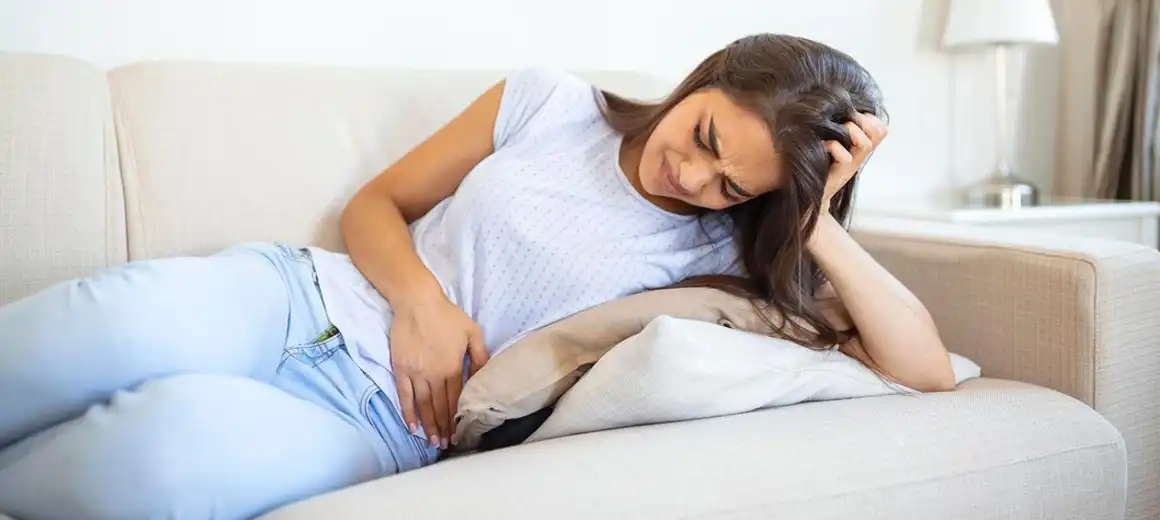7 Holistic Approaches to Easing PMS Symptoms

- October 24, 2023
- by The Ginger-U Team
Premenstrual Syndrome (PMS) is a condition that affects numerous women worldwide, manifesting as a combination of emotional and physical symptoms that occur before menstruation. While the exact cause of PMS remains elusive, there are several holistic approaches that can help alleviate its symptoms. In this article, we'll delve into seven holistic methods that have been shown to provide relief.
Dietary Adjustments
Balanced Nutrition: One of the primary ways to combat PMS symptoms is through a balanced diet. Consuming nutrient-dense foods and avoiding certain substances can make a significant difference. For instance, reducing salt intake can help diminish bloating, while limiting refined carbs and sugary foods can stabilize mood swings. It's also beneficial to incorporate magnesium-rich foods like peanuts, almonds, and green leafy vegetables, which can ease headaches, anxiety, and insomnia.
Limiting Alcohol and Caffeine: Both alcohol and caffeine can exacerbate PMS symptoms. By reducing their intake, one can potentially alleviate irritability, sleep disturbances, and mood fluctuations.
Physical Activity
Regular Exercise: Engaging in regular exercise, even light movement, can alleviate fatigue and irritability associated with PMS. Aerobic activities, in particular, release endorphins, dopamine, and serotonin, which can boost mood and energy levels.
Essential Supplements to Support Women's Hormonal Transitions
Inositol: Essential for women with hormonal shifts, especially PCOS. It enhances ovulatory function, ensuring menstrual cycle consistency and addresses insulin resistance.
DIM: Known for harmonizing hormones, DIM optimizes estrogen metabolism, fostering a balanced hormonal environment and promoting reproductive health.
Apple Cider Vinegar: Recognized for metabolic benefits, ACV supports menstrual regularity, enhances metabolic health, and fortifies gut health.
Maca: A nutrient-rich plant known for balancing hormones and aiding menstrual consistency. It also provides relief from menopausal symptoms.
Always consult your doctor before starting any supplements to ensure safety and compatibility with your health conditions.
Stress Management
Mindful Techniques: Implementing stress management techniques such as meditation, deep breathing exercises, and yoga can significantly reduce PMS symptoms. These practices not only help in managing stress but also promote overall well-being.
Alternative Therapies
Acupuncture: A traditional Chinese medicine practice, acupuncture has been found to reduce pain, inflammation, and stress associated with PMS. It can also help regulate menstrual cycles.
Aromatherapy: Essential oils like chamomile, lavender, and rose can promote relaxation and improve sleep during PMS, offering a natural way to alleviate some of the emotional symptoms.
Adequate Sleep
Ensuring you get between 7 to 9 hours of sleep each night is crucial. Proper rest can minimize symptoms like fatigue, irritability, and mood swings, promoting overall health during the premenstrual phase.
Navigating PMS with Expertise and Care
Ginger-U's Women's health coaches are adept at guiding women through the complexities of PMS and its holistic management. Understanding the intricate nature of hormonal fluctuations during the menstrual cycle, they provide customized programs and unwavering support. Their mission is to empower women to understand PMS, make informed health decisions, and approach each cycle with resilience and poise.
With a focus on nurturing self-awareness and self-compassion, Ginger-U's coaches ensure that women are prepared to address both the challenges and the opportunities that PMS brings. Their holistic approach emphasizes overall well-being, encompassing both physical health and personal growth.
Final Thoughts
PMS can be a challenging condition to navigate, but with the right holistic approaches, it's possible to find relief. By incorporating a combination of dietary changes, physical activity, essential supplements, stress management techniques, and alternative therapies, one can create a balanced strategy to ease PMS symptoms and improve overall well-being.
Frequently Asked Questions (FAQ)
What is Premenstrual Syndrome (PMS)?
PMS refers to a combination of emotional and physical symptoms that occur in women typically 1-2 weeks before menstruation. These symptoms can range from mood swings and irritability to bloating and fatigue.How can dietary adjustments help alleviate PMS symptoms?
A balanced diet can play a significant role in managing PMS symptoms. Reducing salt intake can help with bloating, while limiting refined carbs and sugary foods can stabilize mood swings. Consuming magnesium-rich foods can also help ease headaches, anxiety, and insomnia.Are there any natural supplements that can help with PMS?
Yes, supplements like Inositol, DIM, Apple Cider Vinegar, and Maca have been shown to support hormonal balance and menstrual regularity. However, it's essential to consult with a healthcare professional before starting any supplements.How does exercise help in managing PMS symptoms?
Regular exercise, especially aerobic activities, can release endorphins, dopamine, and serotonin, which can boost mood and energy levels. Physical activity can also help alleviate fatigue and irritability associated with PMS.Can alternative therapies like acupuncture and aromatherapy help with PMS?
Yes, acupuncture has been found to reduce pain, inflammation, and stress associated with PMS. Aromatherapy, using essential oils like chamomile and lavender, can promote relaxation and improve sleep during PMS.How important is sleep in managing PMS symptoms?
Adequate sleep is crucial in managing PMS symptoms. Ensuring 7 to 9 hours of sleep each night can minimize symptoms like fatigue, irritability, and mood swings, promoting overall health during the premenstrual phase.

Comment